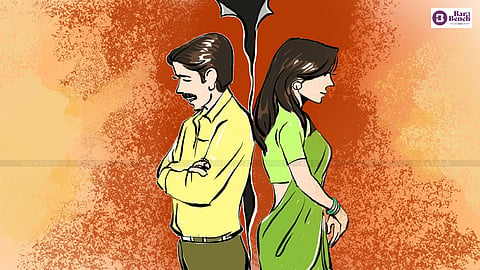The Supreme Court recently observed that courts must not presume that a marriage has "irretrievably broken down" or grant a divorce on that ground merely because the spouses are living separately, without first determining who was responsible for the separation.

